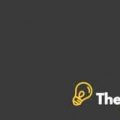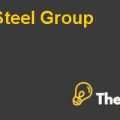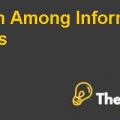
LUFTHANSA CASE ANALYSIS Case Solution
Problem Diagnosis
Numerous tremendous changes have been taking place in the global competitive landscape that are threatening Deutsche Lufthansa AG (Lufthansa Company), which is the largest airline group in the world. The long haul segment is the one where the company is receiving the majority of the competition and the three major airlines, which have stood against to compete with Lufthansa are the Qatar Airways, Etihad Airways, and the Emirates Airline. The long haul segment of Lufthansa had been traditionally profitable however, this is not the case now in 2012.
Therefore, if the company wants to keep its top spot and sustain the profitability, then the chief executive officer and the Chairman of Lufthansa would have to react quickly and develop certain strategic options to counter this challenge. Lufthansa has always ignored the challenge of the low cost airlines in the past however, now the company will have to face this challenge and device certain strategies to mitigate the challenge from the low cost airlines.
This report attempts to analyze the strategic issues and the challenges, which are being faced by Lufthansa by examining the internal and external environment, resource capabilities, and performing a SWOT analysis for the company. Based on this, the competitive advantage for Lufthansa has been identified and then recommended strategic options have been made to the CEO and Chairman of Lufthansa to implement. These strategic options are important for the company to be implemented immediately in order to save the company from these challenges and for expanding and sustaining the market leading position of Lufthansa as well.
Strategic Analysis
The strategic analysis for Lufthansa has been performed by examining the external and internal environment of the company. The industry analysis for the aviation industry has also been performed, along with the SWOT analysis and resource analysis for Lufthansa. Based on this detailed examination, the competitive advantage for Lufthansa and all the strategic issues and challenges faced by the company have been identified.
PESTEL Analysis
Lufthansa group operates on the global scale and it is the largest airline in the world in terms of the destinations, fleet sizes, scheduled passengers, revenues for the cargo and the passenger business of the company. This huge scale expansion of the company makes it subject to the effect of the different cultures, markets, and the regulations around the world.
Political
The deregulation is one of the main issues surrounding the airline companies in the aviation industry. However, the government provides fuel subsidies to the airline companies. The government also participates in the regulation of the fare assigning and the fare ranges. Moreover, the government also participates in the use able routes in order to complete the completion in the country. The government also controls the risk of maintaining the requirements for the tourists and the immigrants.
There are also a number of constraints with regards to the adherence to the government regulations. Such as the pledge, which has been taken by the government of UK, to reduce the emissions of the CO2 by around 60% and this is mentioned in the UK climate change bill. Apart from this, EU emissions trading scheme has also been developed in 2012, which restricts the emission of the carbon dioxide at a rate of 3.15 kg of CO2 per each Kg of the fuel used by the airlines. Finally, there are many government policies, which are being established that discourage the cross border consolidation..........................
This is just a sample partial case solution. Please place the order on the website to order your own originally done case solution.













